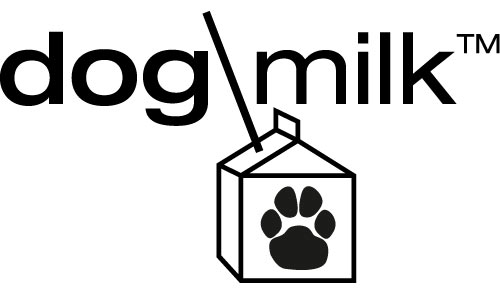
Featured
Would like to feature us? Here's the press release with images, and if you need more, contact us at anytime!
Warm in the winter, cool in the summer
We know they are sensitive. They climb on the radiator, lean against cold wall, drink water to keep their body temperature optimal.
It's about time we introduce them a climate controlled house.
“I’ve got a really nice pad covered in furs for the winter. Lucy sits there from time to time, but prefers to lay in the sun whenever she finds one. Knowing that I just can’t turn the heat off when I leave the house. ”
Fully autonomous
While the ambient temperature is within the comfort zone, it idles, periodically checking the temperature. Once a decent amount of temperature differential is detected, it will cool or warm towards the ideal temperature by a few degree, in order to both welcome the animal in and to lure them as many of them can feel the temperature of the destination without being there. Once the occupancy is detected, it goes into a full cooling/warming mode with it's speed curve set by the animal's weight - the heavier the animal is, the harder it pushes to get to the optimal stage.
The occupancy pattern is learned and will prepare Aridus Den to react faster or be more energy efficient. If the animal does not come in for an extended period of time, it will go into different stages of energy savings mode, just like your laptop or a smartphone to save energy.
So whether the season has changed, or the animal has gone for a vacation, there is never a need to adjust temperature. Just plug in, and let them enjoy.
(quiet)
Most small animals- Cats, dogs, ferrets, and rabbits - have very sensitive ears. Many of them associate the sound of abrupt motor noise with thunder.
So we got rid of it. The noise. Moving parts. And fans.
The result is silent operation. Even while it cools at full speed. To provide the most comfortable space for your loved one.

Efficiency
Most air conditioners and heaters at households are convective. It means that they cool or warm the entire air in the space to get to your animal friend.
Two problems. First, the amount of air they need to cool and warm are enormous compared to the volume of the animal. And second, air, is one of the least heat conductive material we have around.
Aridus Den is conductive for both cooling and heating. In fact, it uses the same component for both cooling and heating, known as thermoelectric module.
The module heats and cools a panel of aluminum alloy, one of the most heat conductive element around us, and it spreads the temperature on the sitting surface evenly.
By comparison, a small New York style-living room that is 10' x 20' x 9' has 1800 cubic feet of air to reach your animal that is less than one cubic feet. Aridus Den? zero, as it's convective. Air versus Aluminum? over 8,000 times of heat conductivity.
Stacked with it's smart energy control, leaving Aridus Den on at all times consumes only about the same amount of energy that a regular 60W light bulb would, if it was lit only for a few hours at night.
Refrigerant-free
Unlike a simple fan, Aridus Den can cool below room temperature. But it differs itself from an air conditioner or refrigerator yet again in that it does not use any refrigerant.
Any of those gases - methyl chloride, CFC, HCFC, HFC - are not only toxic to animals and humans to inhale, but is also one of the main source of air pollution when escaped (yes, they do escape over time).
As for you, You'd never need to call a mechanic because of a gas leak. For the animals, they will be intrinsically safe.

Emotional attachment
We like to buy new things for them. A new warm pet bed for the winter, a new wooden house for the spring, a cooling pad for the summer.
We keep buying them, partially because they only work for a specific (narrow) temperature range, and also because your loved one simply does not recognize it as their home.
Aridus Den is the all-season solution that goes much cooler than what a cooling pad can handle on a hot summer day, and much warmer than a thick fluffy houses in a cold winter day.
A sensor monitors ambient temperature real time and another sensor locates millimeters beneath their body, to get the accuracy that a home thermostat can never achieve.
All-season also means that the house isn't getting replaced every few months, and that will grow an emotional attachment as their own private space that is always comfortable.
Moving every few months versus living in one house for years. Which would feel more like being at home?
Smart padding
We are using a type of gel that allows the aluminum panel to transfer heat more efficiently. At the same time, it will provide a soft cushion. The types of fabrics we are testing have a higher heat conductivity to make sure that we have a better communication with the animal's body temperature. They can easily be separated and washed, so your loved one won't have to share the bed with bugs and bacteria.

Safety
Some animals will chew. We anticipate it. So we located the transformer right at the plug, to make sure that even if they chew through the cord, the voltage running the cord is low enough not to harm them or to start fire.
And we are stepping further to sculpt and test various designs of the cord itself to be chew-proof in the first place.
We are still going though trials and errors, but it's only a matter of time until we find a form that fuses a great degree of safety and sound aesthetics.
In electrical layout and software we've implemented layers of failsafe features to make sure that when there's something wrong with one component, heating and cooling will stop and indicate the error by blinking in red so we can service them.

A den
Small animals like small spaces. They like to fit themselves into boxes, sleep under the bed, hide in closets and hang inside a washing machine. Leaving them under a nine feet high ceiling designed for human makes them feel vulnerable. A house for them should just fit them. Like a den.
Ear accessories
Magnetic attachment allows free-positioning
Contact
Ideas? Concerns? Sales or media inquiry? We'd love to hear from you!













